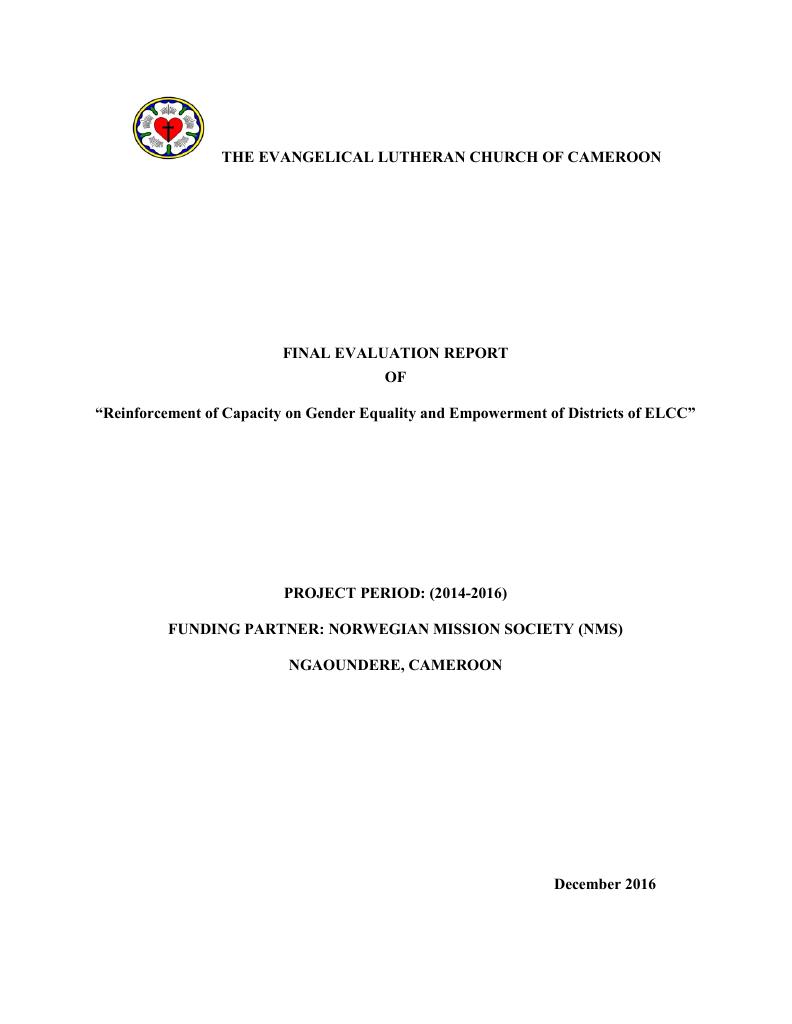Evaluering
Final Evaluation Report of “Reinforcement of Capacity on Gender Equality and Empowerment of Districts of ELCC”
The project “Reinforcement of Capacity on Gender Equality and Empowerment of Districts of the ELCC” is a project implemented by the ELCC in partnership with Norwegian Mission Society (NMS). The first phase of the project was from year 2008 – 2012 under the title of Project for Reinforcement of Capacity of Leaders (PRCL) in ten regions of the ELCC. The implementation of the project in these regions has resulted in tangible results among the target beneficiaries. The current projects under evaluation, “Reinforcement of Capacity on Gender Equality and Empowerment of Districts of the ELCC” in the ten regions from 2014 – 2016 is developed based on the recommendation of the first phase for a purpose of knowledge transfer and build up on the lessons learned. Despite that, the ELCC is relatively a big church and well structured, it has been suffering from inadequate leadership skills, hardly addressing gender issues and economic problems that negatively affected the sense of the self-reliance among the leaders. These problems have highly influenced further growth of the church. Women and youth in the structure are the most affected of such problems within the church. Though most of the problems especially enhancing the leadership skill has been well addressed during the first phase, problems like enhancing women participation in leadership and decision making and local resource mobilization to ensure self-reliance remained challenges and resulted in the current project phase under evaluation. The specific objectives or outcomes of the project have targeted to improve the role and place of women in the church and the society in terms of rights, family matters, health and economy and encourage all districts to increase their income. This evaluation is conducted with the aim to assess and learn from the achievements of the project implementation during the last three years. It is expected to provide information on what worked and what did not work and why and whether the underlying theories and assumptions used in the project development were valid. It mainly intends to provide information on the relevance, efficiency, and effectiveness, sustainability and impact of the project.
